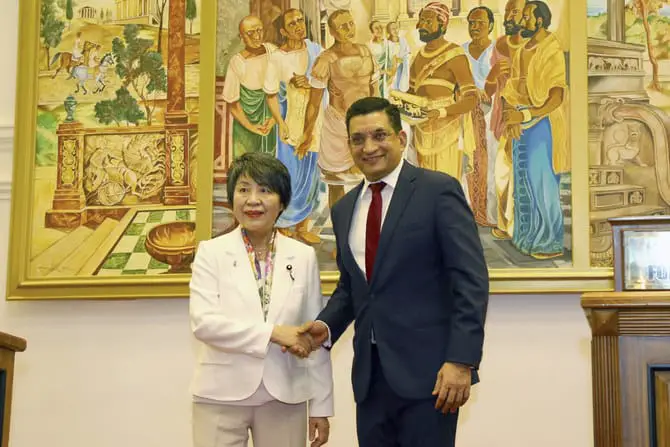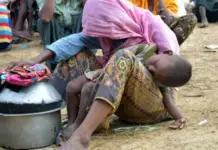Japan’s Foreign Minister, Yoko Kamikawa, stated the critical importance of Sri Lanka’s economic resurgence for maintaining stability in the Indo-Pacific region during discussions on Saturday. Kamikawa urged Colombo to promptly restructure its foreign debt, highlighting the necessity for securing agreements with bilateral lenders and international sovereign bondholders to reinstate suspended foreign funding.
Despite Sri Lanka’s aspirations to finalize deals with foreign creditors by April following its default on $46 billion of external debt in April 2022, conclusive agreements have yet to materialize. Kamikawa acknowledged the urgency of reaching a debt restructuring accord with all creditors, including China, the island’s largest bilateral lender.
Expressing Japan’s commitment to supporting Sri Lanka’s development, Kamikawa conveyed Tokyo’s intention to swiftly resume ongoing yen loan projects post-debt restructuring. Stressing Sri Lanka’s strategic position along the primary east-west international shipping route, Kamikawa emphasized that the island’s economic recovery was indispensable for the broader stability and prosperity of the Indo-Pacific region.
To continue with a four-year $2.9 billion bailout loan initiated since March last year, Sri Lanka must obtain consent from all official creditors and a majority of private bondholders. Japan, as the second-largest bilateral lender to the island, has voiced concerns regarding China’s extensive infrastructure initiatives in Sri Lanka and the wider region, citing deficiencies in meeting international finance standards.
Highlighting Sri Lanka’s predicament due to its inability to repay a substantial loan from China obtained in 2017 for the construction of a deep-sea port in Hambantota, Kamikawa noted that Sri Lanka surrendered the port to a Chinese firm for $1.12 billion on a 99-year lease. This financial strain culminated in acute shortages of essential imports, including food, fuel, and medicines, in 2022.
Following months of protests and allegations of mismanagement and corruption, former President Gotabaya Rajapaksa resigned and fled the country in July 2022. His successor, Ranil Wickremesinghe, has implemented stringent economic reforms aligned with an IMF bailout, including tax hikes, subsidy cuts, and other measures to stabilize the economy.







